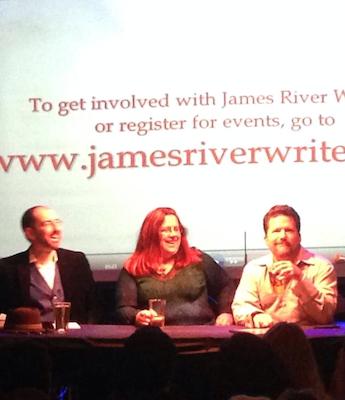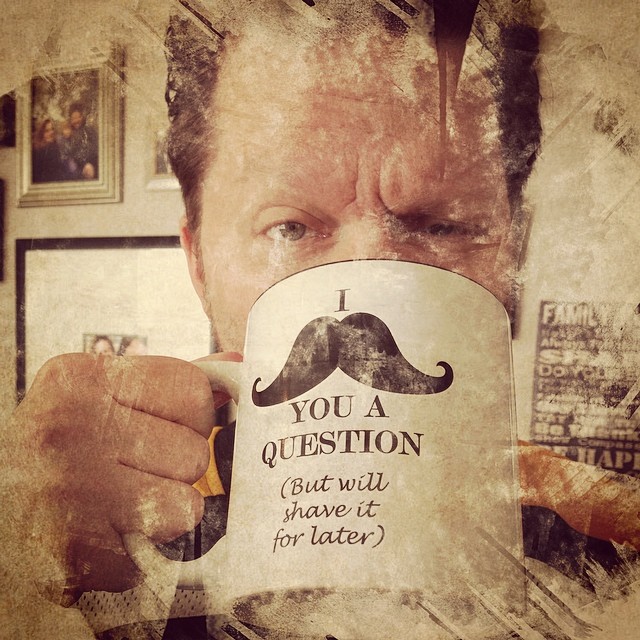Depending on who you talk to, stepping into the publishing industry today is something akin to tap dancing in a mine field. There are the seasoned veterans who are struggling along with some publishers against changing technologies and market demands. Meanwhile, the independently published continue to rattle their sabers and proclaim without question “Our way is the only way!” in an militant fashion frighteningly similar to the traditionally published authors of less than a decade ago.

As for myself, I have seen this “Us Vs. Them” nonsense back when “Social Media” was referred to as “New Media” and the ambitious creators behind this bold, cutting edge content were aiming to topple Old Media. I remember these days well as Apple had just opened the door to podcasters and it looked like these mavericks of media were going to fulfill their self-proclaimed prophecy as the featured podcasts were all people I knew, all shows either on my iPod or in my listening cue.
Within a year, the Featured Podcasts on iTunes were HBO, Discovery Channel, ESPN, and Oprah Winfrey. Oh, and those mavericks were either working for Old Media or contracting with them.
I look at what is happening now in publishing and think “Good Lord, here we go again.”
What I believe in is what is working for those few legitimate content creators like C.C. Chapman and Felicia Day still remaining from the early days of Social Media: success and sustainability can be found in a hybrid approach. Instead of dismissing one approach as old and antiquated and another as amateur hour, find how both can work together and have them work together seamlessly.
Welcome to the mind and strategy of a hybrid author.
Pip and I, as I blogged about over at One Stop Writer Shop, were guests of the James River Writers, asked to talk more about the advantages, disadvantages, challenges, and accomplishments in managing publishing projects both with traditional publishing houses and independently with our own publishing line. Here’s how this episode of The Writing Show played out:
You’re ready for the world to read your book. Should you self-publish and seek out your own audience? Or go the traditional route and entrust your work to a traditional publisher? There’s a third option: Do both. At the March 27, 2014 Writing Show, husband-and-wife team Philippa Ballantine and Tee Morris and moderator Bill Blume showed us how.
“Many streams make a river,†counseled Ballantine, author of steampunk and fantasy fiction. While Ballantine has a long list of traditionally published fiction, she has also self-published work such as her novel Weather Child, which her agent said wouldn’t sell in the United States because it takes place in Ballantine’s native New Zealand.Â
Self-pub can be quite lucrative, says Morris. When he submitted a novella to the Clockwork Fairy Tales anthology (in which Ballantine’s work also appears), it was rejected as not sufficiently steampunk. He released it independently — and made twice as much as his wife did for her piece. “So there was a lot of tension in the house,†he says with a grin.
Read the entire re-cap (and find out if the tension ever eased up at the Morris home) Â at the James River Writers’ website.
What I think no one wants to admit, much like with social media, is that there is no magic bullet. Using colorful terms like “house slaves” to refer to those in NY Publishing contracts and the “I told you so…” blogposts really don’t help anyone or change the industry. These kind of proclamations do make you look like a nitwit, that you can be certain of; but I’m not the only author who is stepping back and saying “I think we all need some perspective here.” when it comes to self-publishing, traditional publishing, and a viable future in writing.
Being a hybrid author is not a magic bullet either, but I can tell you that from my own experiences that I am still writing professionally — full time — and making strides forward in our own writing careers. Is it because we are leveraging the new readers traditional publishing houses bring us? Is it because we are focused on producing content — lots of it — and selling it at a variety of prices? Is it because we work social media channels as hard and relentlessly as we do our writing?

What we do is we never stop learning. It’s no different than when I’m writing. I research something I don’t know, pick up a new skill along the way, and I’m better for it. Being both NY and self-published is not that different. Going hybrid has proven itself a grand ride for me…
…but, as they say, your mileage may vary.